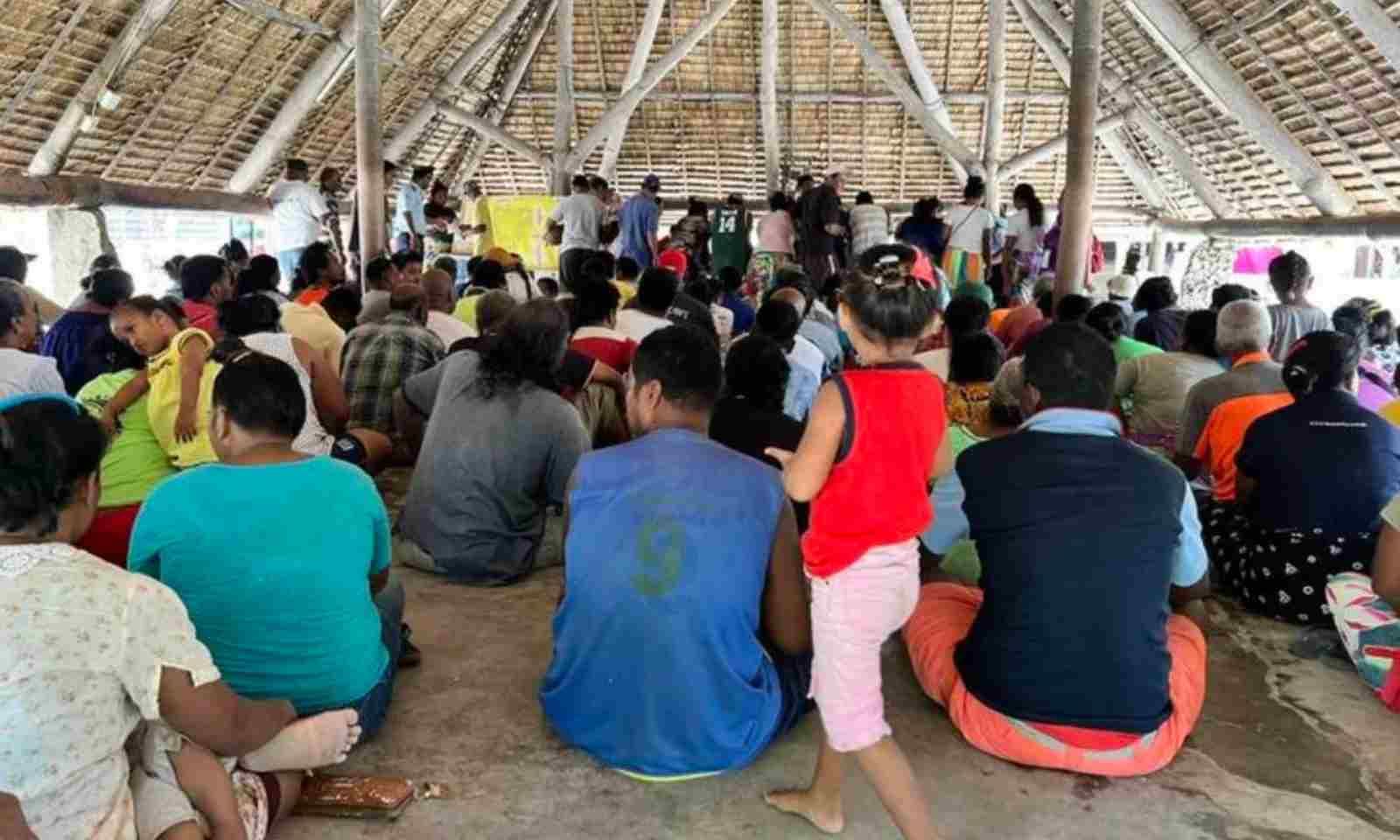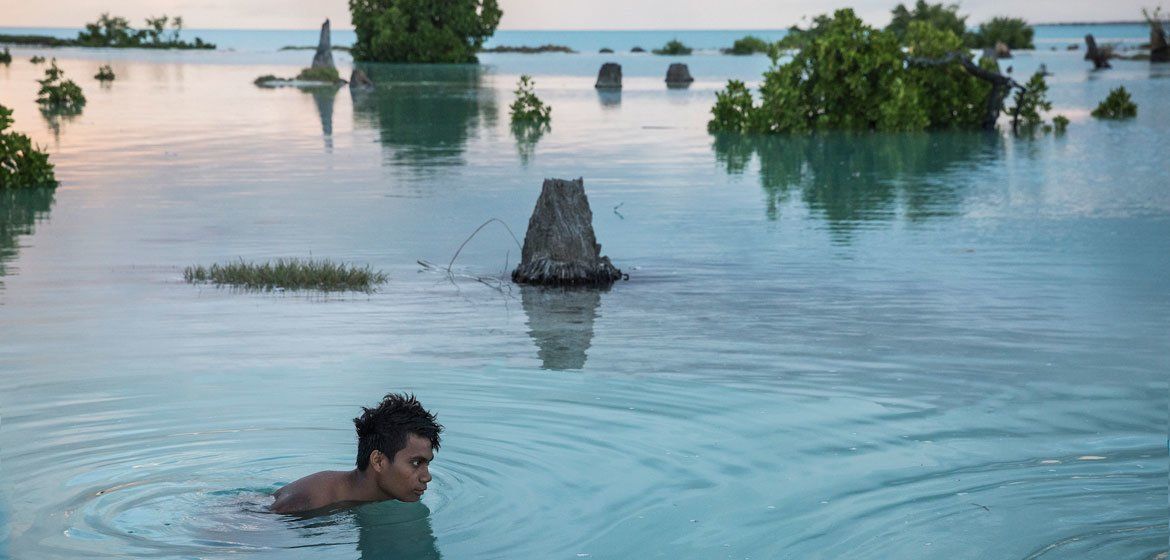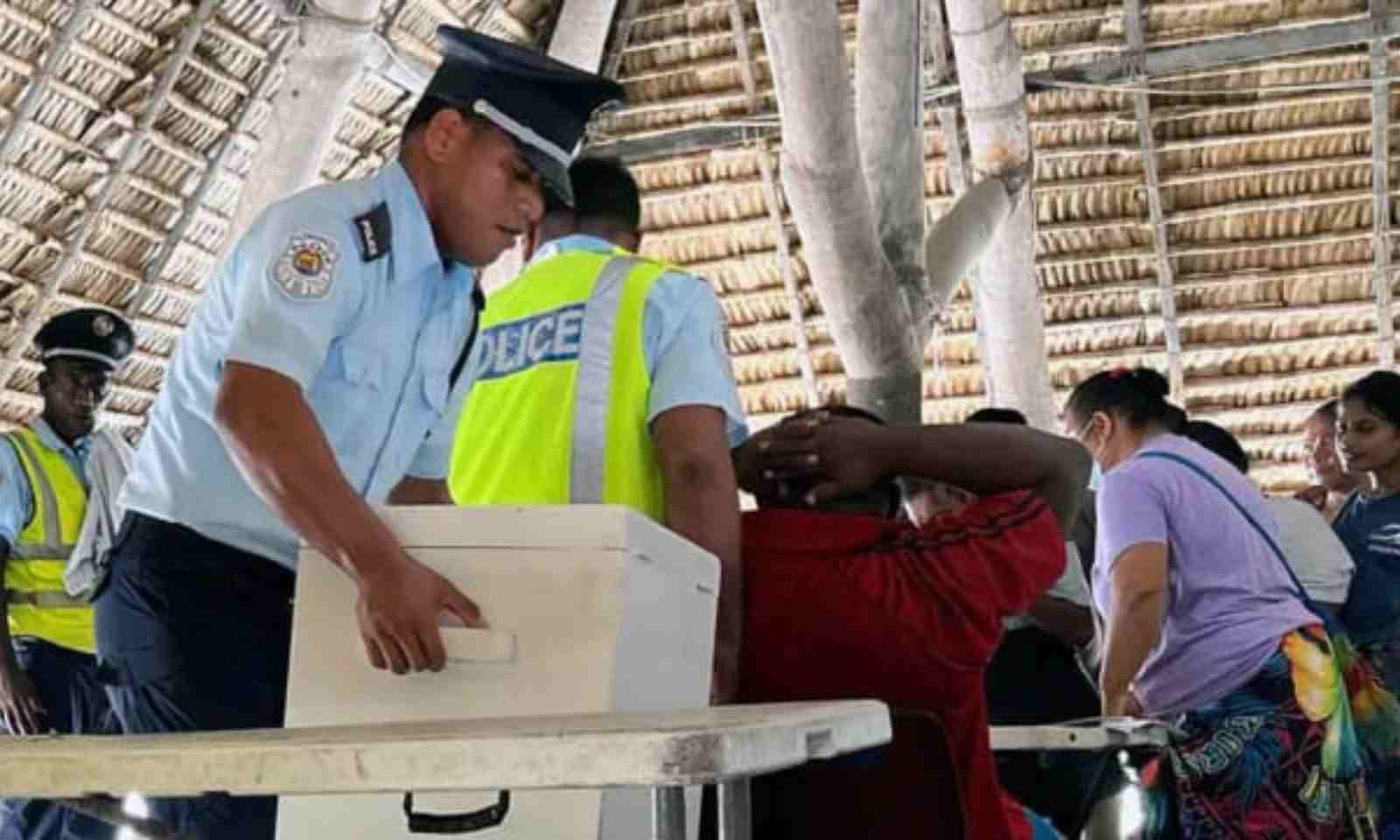

Taneti Maamau has secured more than 80 per cent of the votes to win the Onotoa seat.
Photo/president.gov.ki
Pro-China leader on course to retain Kiribati presidency
The Kiribati national election results are in as rising costs, climate change, and Chinese influence among the big topics.



Musicians warn AI could strip the soul from island sounds




Musicians warn AI could strip the soul from island sounds

Kiribati is set to continue on its current path with China after incumbent President Taneti Maamau retained his parliamentary seat following two rounds of voting in the country’s national election this week.
While the country won't know until next month if Maamau is the official winner, results posted by the Kiribati Ministry of Culture and Internal Affairs show Maamau secured more than 80 per cent of the votes in Onotoa, putting him in a strong position to be re-elected as president.
As of 10am local time on Tuesday, counting in 12 of the 16 polling stations were completed following round two of voting on Monday. Round one was held last Wednesday.
This vote is pivotal for the remote Pacific island nation with Maamau’s pro-China stance in focus since he shifted Kiribati’s allegiance from Taiwan to China in September 2019.

i-Kiribati await the outcome of the national election in the capital Tarawa. Photo/Rimon Rimon
Kiribati has since strengthened its ties with Beijing, drawing concerns from the United States and its allies over China’s growing presence in the Pacific and the state of democracy in the region.
Kiribati is located some 4700km north of New Zealand with a population of just over 130,000. The low-lying Micronesian atoll is one of the most vulnerable islands to the effects of the climate crisis including sea-level rise.
There are only two political parties in Kiribati: the ruling Tobwaan Kiribati Party (TKP) of Maamau and former opposition leader Tessie Eria Lambourne's Boutokaan Kiribati Moa (BKM). The other candidates are independents. A total of 114 candidates contested the election, with 18 of them women.
As voters completed two rounds of polling - one last Wednesday and the other on Monday - the election will determine the direction of Kiribati’s economic and geopolitical future.
The experts say economic challenges and China’s involvement in Kiribati, including several undisclosed agreements, have been key issues during the campaign.
The outcome could have broader implications for regional dynamics, as Western countries closely monitor the election’s results.
The first round of voting on 14 August resulted in the election of 25 Members of Parliament, including three women.

This election has highlighted the global struggle for influence, and complicated by rising costs and climate change concerns. Photo/UNICEF
Among the successful candidates are Maamau and Tessie Eria Lambourne, the wife of sacked high court judge David Lambourne, an Australian living in the capital Tarawa.
David Lambourne was sworn in as the first puisne judge to the High Court of Kiribati in 2018.
Maamau said he was grateful for the support he had received from the constituents.
“This victory reflects the trust my people have in my leadership and vision for our nation,” he said, while emphasising his commitment to addressing the pressing issues facing Kiribati, including climate change and economic challenges.
Maamau’s overwhelming support in the election positions him favourably to be re-elected as president and reveals that the political dynamics in Kiribati remain closely tied to the populace priorities.
As the i-Kiribati people grapple with the dual threats of climate change and economic pressures, Maamau’s victory signals a continuation of his pro-China policies, which sparked both support and criticism at home.
Observers have noted that his government's close ties with Beijing could influence future developments in the Pacific region.
One political analyst said the results so far showed that priority for i-Kiribati were the “immediate concerns”, and Maamau's policies resonated with their needs.

Photo/Rimon Rimon
Local investigative journalist and media consultant, Rimon Rimon, said polling began early followed by a lengthy wait for results for 22 electorates with the final result from the largest electorate, South Tarawa, taking the longest to declare.
He said three women secured seats in the first round: Lambourne, who made a comeback representing Abemama; Lavinia Teatao-Teem from Abaiang; and Ruta Teretia Babo from Maiana.
“Teatao-Teem, a businesswoman and daughter of former President Teatao Teannaki, won over 50 per cent of the majority vote, outperforming four male opponents.
“Babo, an Executive Assistant at Radio Kiribati and the youngest woman MP, led the vote in her constituency, surpassing three male rivals.
“Of the elected representatives, 17 are returning parliamentarians, including Maamau and 11 other MPs from his party. Three are members of the former opposition KKP, including Lambourne; two are independents; and eight are new MPs.”
While TKP leads with 12 re-elected members, it is still too early to determine which party will secure a majority, Rimon said.
He added that 12 electorates awaited the results of the second round of voting, with the outcome dependent on new MPs and their political allegiances.
He said the overnight results would help shape the formation of the new government.
Watch investigative journalist Rimon Rimon's full interview below.